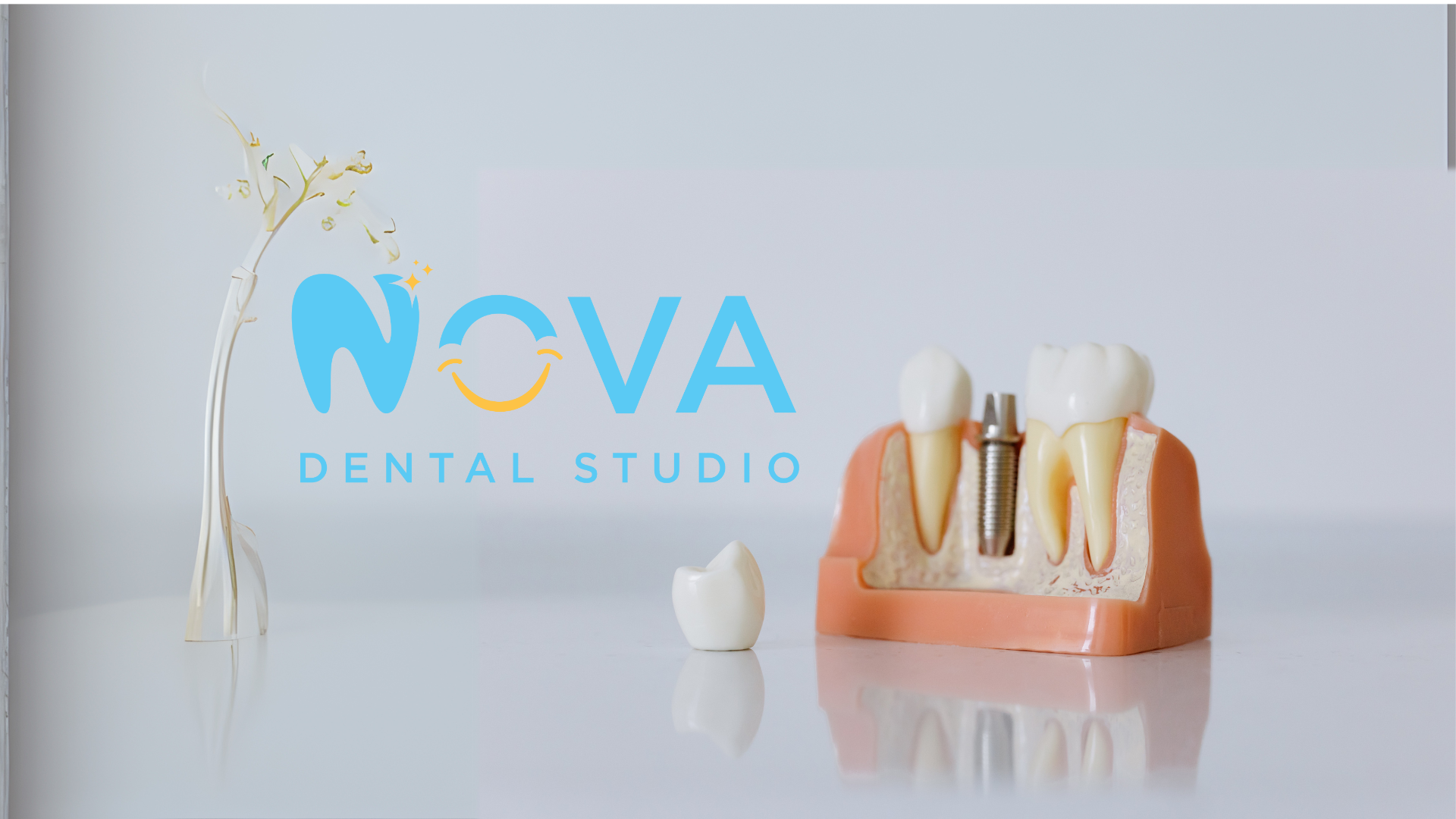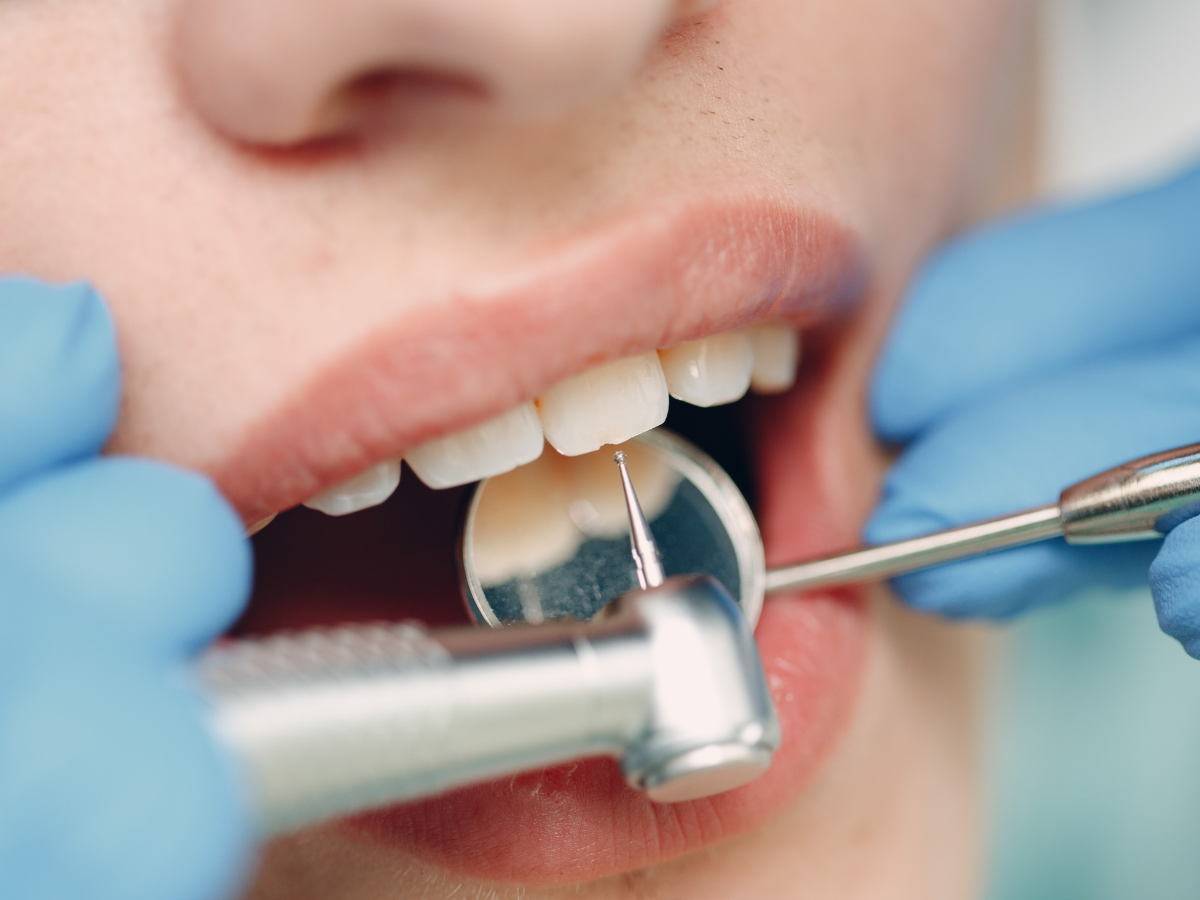Discover how Nova Dental Studio empowers patients with knowledge about dental health. Learn about cutting-edge technologies, treatment options, and tips for maintaining a healthy smile, ensuring you make informed decisions for your care.
NOVA DENTAL STUDIO
PATIENT EDUCATION

By Cedi Walterson Pagdalian
•
November 15, 2024
Understanding the Lifespan of Dental Implants Dental implants are a popular solution for replacing missing teeth, but many people wonder how long they last. The lifespan of dental implants can vary based on several factors. Understanding these factors can help you make informed decisions about your dental health. Factors Influencing Implant Longevity Material Quality : The type of materials used in the implant can greatly affect its durability. Oral Hygiene : Keeping your mouth clean is crucial for the health of your implants. Lifestyle Choices : Habits like smoking or poor diet can shorten the lifespan of your implants. Common Misconceptions About Implant Durability Many believe implants last a lifetime without care, but regular maintenance is essential. Some think all implants are the same, but quality can differ significantly. There’s a myth that implants can’t fail, but complications can arise if not properly cared for. Comparing Dental Implants to Other Dental Solutions Bridges : Typically last 5-15 years and may require replacement. Dentures : Can last 5-10 years but often need adjustments. Implants : With proper care, they can last 10 years or more, often much longer. At Nova Dental Studio, we emphasize the importance of understanding how to care for your dental implants to ensure they last as long as possible. Material Quality and Its Impact on Implant Longevity Types of Materials Used in Dental Implants Dental implants are made from various materials, each with its own benefits. The most common materials include: Titanium : Known for its strength and ability to fuse with bone. Zirconia : A ceramic option that is more aesthetic and less likely to cause allergic reactions. Composite materials : These can combine different elements to enhance performance. Advantages of High-Quality Materials Using high-quality materials in dental implants can lead to better outcomes. Some advantages include: Increased durability : High-quality materials resist wear and tear. Better integration : They bond more effectively with the jawbone. Reduced risk of complications : Quality materials lower the chances of implant failure. How Material Choice Affects Durability The choice of material plays a crucial role in how long an implant lasts. Factors to consider include: Biocompatibility : Materials that the body accepts well tend to last longer. Corrosion resistance : High-quality materials resist breakdown over time. Strength : Stronger materials can withstand daily wear and tear better. Choosing the right material for dental implants ensures their longevity and effectiveness. At Nova Dental Studio, we prioritize using top-quality materials to provide our patients with the best possible outcomes. 2. Role of Oral Hygiene in Extending Implant Life Daily Oral Care Practices To keep your dental implants healthy, following good daily oral care habits is important. Here are some key practices: Brush your teeth at least twice a day with a soft-bristled toothbrush. Use a non-abrasive toothpaste to avoid damaging the implant surface. Floss daily to remove food particles and plaque between your teeth and the implants. Importance of Regular Dental Check-Ups Regular visits to your dentist are crucial for maintaining your dental implants. During these check-ups, your dentist can: Check the health of your gums and implants. Clean areas that are hard to reach at home. Identify any potential problems early on. Impact of Poor Hygiene on Implants Neglecting oral hygiene can lead to serious issues for your dental implants. Some consequences of poor hygiene include: Increased risk of gum disease, which can affect the stability of the implant. There are higher chances of infection around the implant site. Possible failure of the implant if not addressed in time. Maintaining good oral hygiene is essential for the longevity of your dental implants. At Nova Dental Studio, we emphasize the importance of daily care and regular check-ups to ensure your smile lasts a lifetime. 3. Influence of Lifestyle Choices on Implant Durability Smoking and Its Effects on Implants Smoking can have a negative impact on dental implants. It can slow down healing and increase the risk of failure. Here are some key points to consider: Smoking reduces blood flow to the gums, which is crucial for healing. It can lead to infections that harm the implant. Smokers may experience more complications than non-smokers. Dietary Habits That Support Implant Health What you eat plays a role in how long your dental implants last. A balanced diet can help keep your implants strong. Here are some foods to include: Calcium-rich foods like milk and cheese are good for solid bones. Fruits and vegetables are good for vitamins that support gum health. Lean proteins to help with tissue repair. Exercise and Oral Health Connection Staying active is good not only for your body but also for your oral health. Regular exercise can: It improves blood circulation, which helps your gums. Reduce stress, which can lead to better oral hygiene habits. Encourage a healthier lifestyle overall, supporting your dental implants. Making smart lifestyle choices can significantly enhance the durability of your dental implants. At Nova Dental Studio, we emphasize the importance of these choices in maintaining oral health.
Nova Dental Studio
Find our office on the third floor right next to the elevators!
Phone: 949-889-0006
Email:
info@novadental.studio
All Rights Reserved | Nova Dental Studio | 2024






